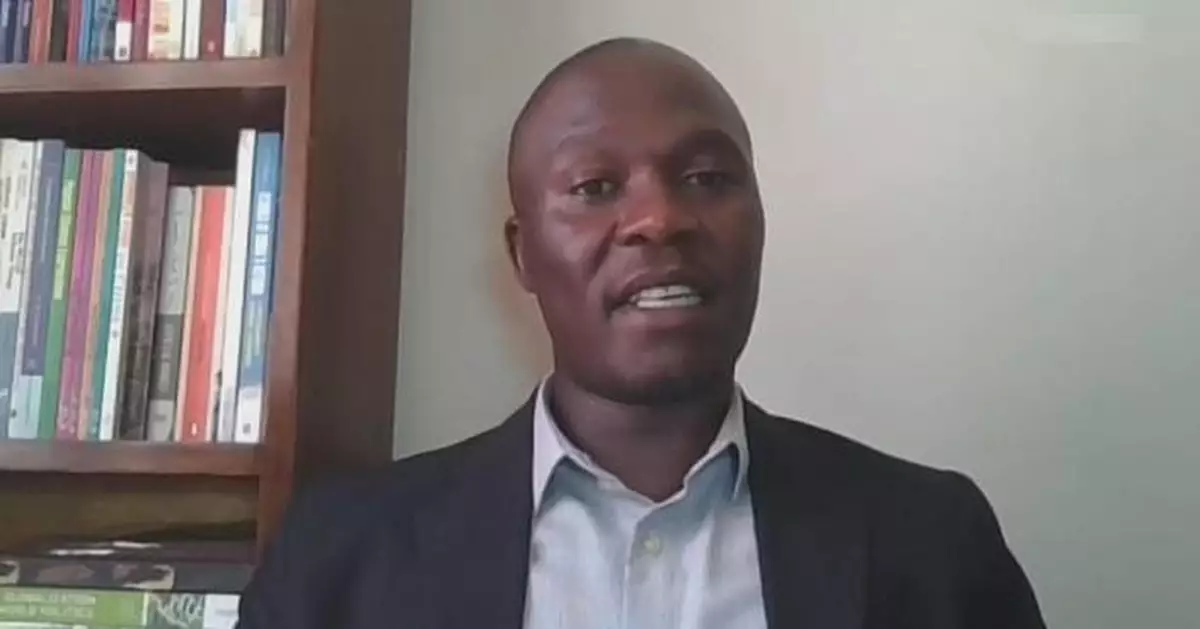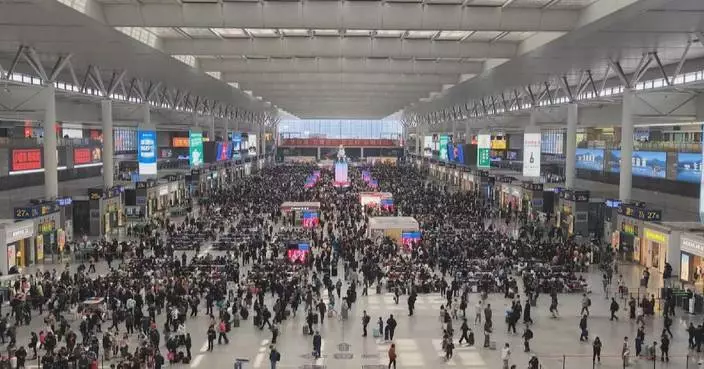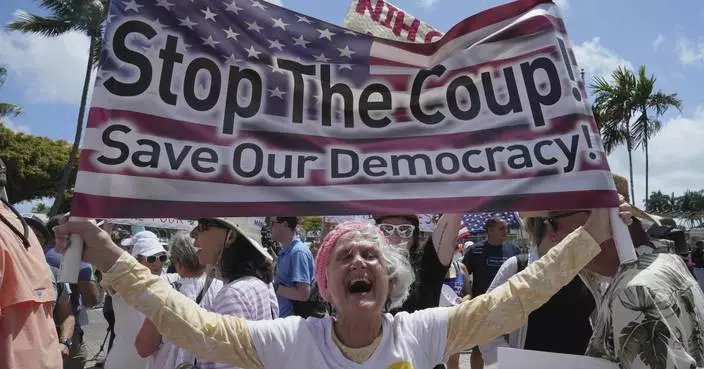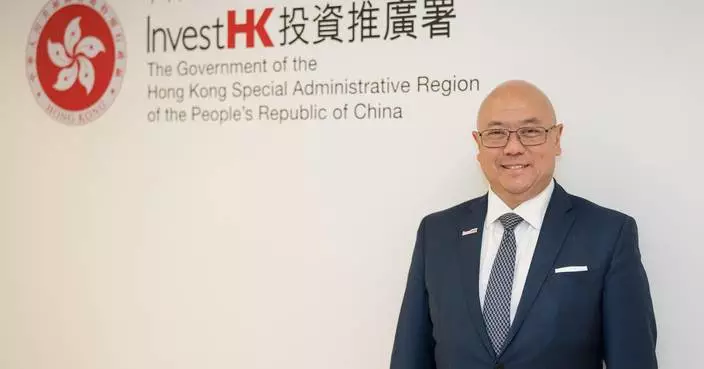Chinese President Xi Jinping's New Year address has resonated deeply with some experts and scholars in Global South countries like Kenya and Egypt for its demonstration of China's aspirations and hopes for common global prosperity.
Xi, also General Secretary of Communist Party of China (CPC) Central Committee, looked back over the past year in his New Year's Eve speech and said it was filled with "touching and unforgettable moments."
In his speech, Xi highlighted China's active role in promoting global governance reform and deepening solidarity and cooperation among the Global South.
Cliff Mboya, a research fellow at Afro-Sino Center of International Relations, said in an interview with China Global Television Network (CGTN) that China, as a responsible major country, has been actively seeking shared development opportunities for Global South countries.
"The Global South, and particularly Africa, has been on the periphery of global governance and decision making for a very long time. China talking about reforming the global governance system and reforming it, I think its music in the ears of the countries in the Global South because they have been desiring and wishing to see reforms in the Global South. So this is good news, and it presents China as a political and diplomatic ally that we can use to change some of those rules that have been deemed unfair and unjust to the Global South, so that we may be able to bridge the gap and also drive development of developing countries in the Global South," said Mboya.
He said the Belt and Road Initiative (BRI) had adapted to global economic challenges and was moving to a higher level to focus on people's livelihoods rather than just infrastructure projects.
"The BRI has been around since 2013, and it was doing so well. But then, at some point, the economic challenges and the global economy right now brought some challenges. So, it was about time the BRI was reviewed to be in touch with the current economic situation. So, we've had railways, we've had bridges, we've had energy projects, but then it needs to move to the next level. Previously, connectivity was focused on physical infrastructure, but then now, we are talking about high-level connectivity in terms of efficiency, in terms of deliverables for the people. And this is good news for Africa and countries in the Global South, because China is talking about new quality productive forces. So, we need to ensure that Africa and countries in the developing south are able to make their contributions in the global economy," he said.
Nourhan El-Sheikh, a professor of political science at Cairo University, said China has set an example for Africa, and President Xi's speech had drawn a clear development path for Global South countries.
"China is a focal power for peace in the whole world. China never attacked any other country and has no colonization history. So, I think we share the same feeling and the same concern for peace. If we are talking about development, we should talk about peace and stability in whole Africa. China is a very important partner for Africa, it is the largest trade partner for Africa, it has the largest financial infrastructure in Africa. So, we have many common interests to build upon. His Excellency President Xi, his speech introduced to us a road map, that road map including many important dimensions. Among them, of course, technological sovereignty, which is very, very important to us, also the power of youth, and how it is important to depend on youth to give them a wide participation in development," she said.
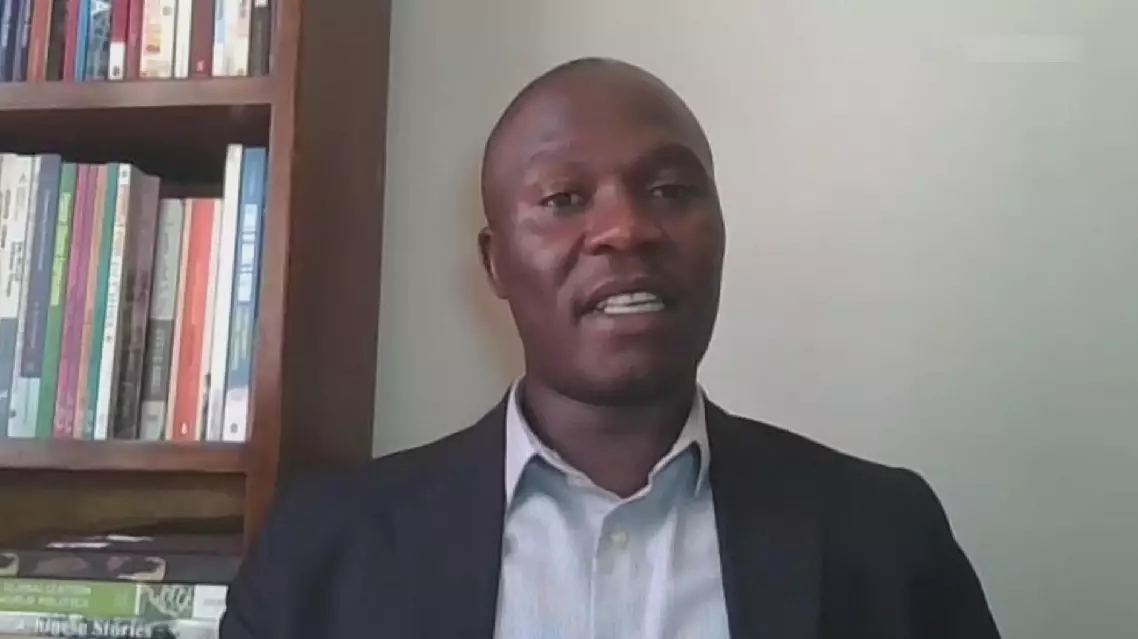
Kenyan, Egyptian experts on Xi's New Year address
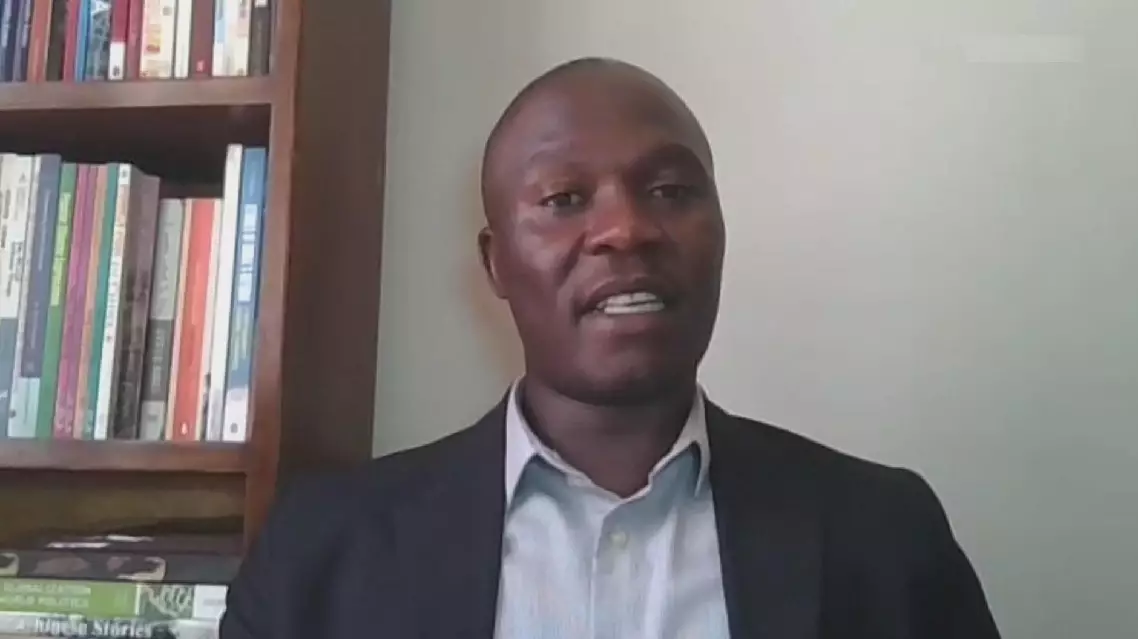
Kenyan, Egyptian experts on Xi's New Year address
China will firmly fight against economic hegemony, advocate justice, and stick to the right path against the sweeping tariffs by the United States, and will open ever wider to the world no matter how the international situation changes, according to a commentary of The Real Point published on Sunday.
An edited English version of the commentary is as follows:
In response to the U.S. imposition of "reciprocal tariffs" on all trading partners, China issued the Chinese Governments Position on Opposing U.S. Abuse of Tariffs on Saturday, after taking a series of countermeasures.
The thousand-word document pointed out that the United States uses tariffs as a weapon to exert extreme pressure and pursue its own selfish interests, which is a typical act of unilateralism, protectionism and economic bullying.
The paper also emphasized that China does not provoke trouble but is not afraid of trouble, and will continue to implement a high-level trade and investment liberalization and facilitation policy to share development opportunities and achieve mutual benefit and win-win results with countries around the world.
Li Haidong, a professor at China Foreign Affairs University, told The Real Point that this position paper demonstrates China's high sense of responsibility to uphold fairness and justice without fear of power politics, which will be conducive to the efforts of the international community to pool together resultant forces and continue promoting economic globalization.
Meanwhile, China's determination to promote high-level opening-up has boosted the courage and confidence of other countries to fight against unilateral bullying and injected certainty into a changing and turbulent world, according to Li.
There are no winners in a trade war and there is no way out for protectionism. When the U.S. complains that the whole world is taking advantage of it, it deliberately distorts a fact that the U.S. is the biggest beneficiary of the world's free trade system since the end of World War II.
Since the establishment of diplomatic relations with China in 1979, the United States has long been reaping substantial profits from its economic and trade ties with the country. More than 70,000 American companies have invested and started businesses in China, and exports to China supported 930,000 jobs in the United States, which maintained a huge surplus in service trade in particular.
According to data from the U.S. Bureau of Economic Analysis, in 2023, the United States exported 46.72 billion U.S. dollars in services to China, and had a trade surplus of 26.57 billion U.S. dollars in services with China.
The Economist criticized the current U.S. trade policy for ignoring the unprecedented prosperity that globalization has brought to the United States.
The U.S. arbitrarily uses tariffs to blackmail other countries at will, attempting to sacrifice the interests of the whole world for U.S. hegemony. But any exertion of pressure and intimidation are useless to China.
This year, in the face of the continuous tariffs imposed by the United States, China has introduced a series of precise and effective measures, as one of the first countries taking countermeasures. The country's move is not only to safeguard its own sovereignty, security and development interests, but also to defend the multilateral trading system and international trade rules.
The world is not a jungle society, and everything must be fair and just. Development is a universal right of all countries in the world, not an exclusive right of a few countries.
The United States has unilaterally imposed tariffs on all its trading partners, violating the WTO's Most-Favored-Nation treatment principle and attempting to subvert the existing international economic and trade order. Its nature is to pursue "America first" and "America special" and deprive other countries of their legitimate right to development.
Over the past days, the European Union, France, the United Kingdom, Italy, Japan, Australia, Singapore, South Africa, Canada and other countries have been criticizing the United States.
China's position paper clearly states that "international affairs should be addressed through consultation, and the future of the world should be decided by all countries", reflecting the common aspirations of the international community and China's consistent position of speaking and doing fair things.
While the United States continues to build "high walls around a small yard" and erect tariff barriers, China is constantly "opening its doors" and "building bridges and roads" to bring more opportunities to the world.
On March 28, Chinese President Xi Jinping met with representatives of the international business community in Beijing and reiterated that China is determined to promote reform and opening up, China's door will only open wider, and China's policy of welcoming foreign investment has not changed and will not change.
The China Development Forum 2025, held in Beijing from March 23 to 24, attracted more than 80 representatives of multinational companies, among which American companies made up the largest proportion, reaching about one-third.
A report released by global management consulting firm Kearney shows that in the ranking of foreign direct investment confidence in the next three years, China has jumped from 7th to 3rd, and ranked first in the special ranking of emerging markets.
At a time when the world is in turmoil and the United States is abusively imposing tariffs, China's position paper sends a strong message to the world about maintaining the multilateral trading system and promoting economic globalization.
The world wants justice, not hegemony. This is China's clear declaration and the common voice of the international community.
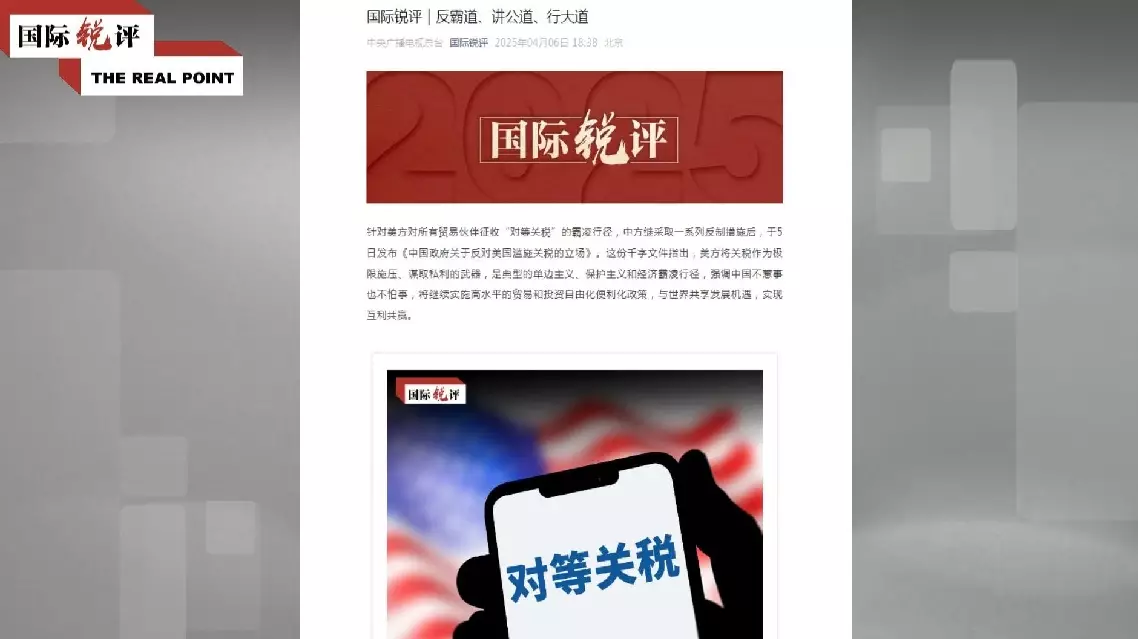
China opposes hegemony, upholds right path against sweeping U.S. tariffs: commentary




